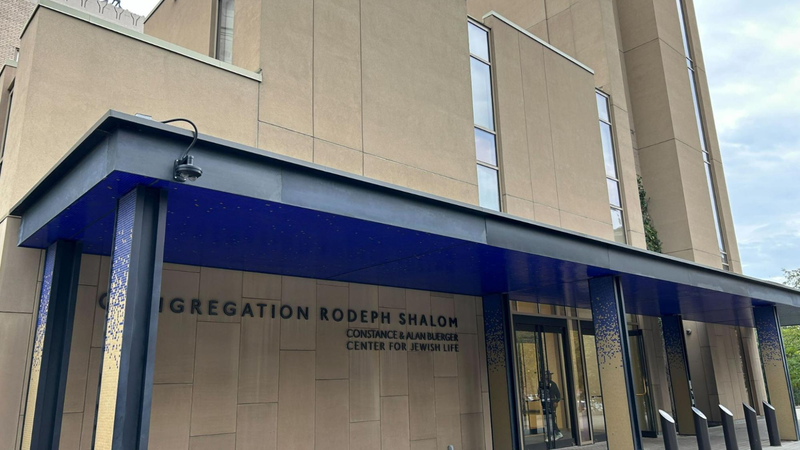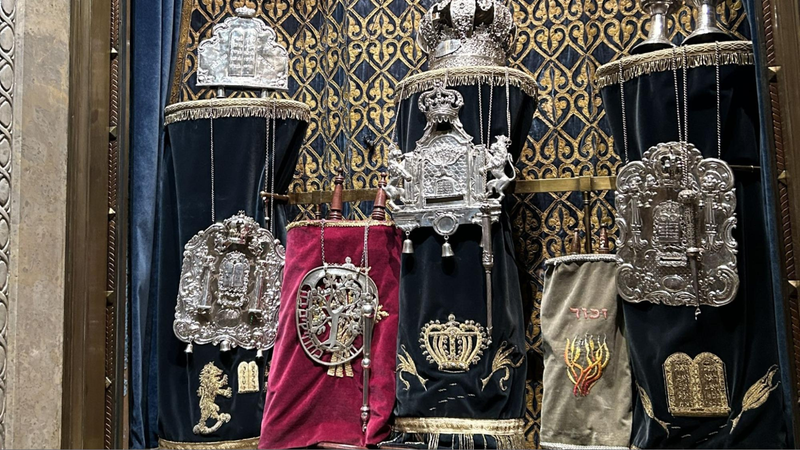
PHILADELPHIA (KYW Newsradio) — Rabbi Bec Richman always considered herself “the spiritual one” in her circle of Jewish friends.
When she got to the Reconstructionist Rabbinical College in Wyncote in 2015 for her post-graduate program, she suddenly felt lost.
“I was in rabbinical school with everyone else who was ‘the spiritual one’ and had a Jewish voice,” Richman said, “and it felt like there was this real identity question of like, ‘Oh, okay, I'm going to be a rabbi, but who am I going to be as a rabbi?’”
A year and a half later, Richman found a calling.
Not only did she plan to get ordained as a rabbi, the leader in a Jewish congregation, she wanted to become a soferet, a person trained in Judaism’s sacred scribal arts whose chief responsibility is to write or repair Torah, the Hebrew Bible.
But there was one problem.
According to traditional interpretation of Jewish law, women aren’t allowed to write Torah.
“If I were a man, there are schools and programs that one can go through,” said Richman, who is now 32 and lives in suburban Cleveland. “But, I am a woman. More importantly, I'm not a man. So that is not available to me.”
Instead of letting ancient rules snuff out her ambition, Richman connected with a group of progressive women who are Torah scribes.
Their movement has gained momentum over the last 30 to 40 years, thanks to the trailblazing work of Jen Taylor Friedman, who is believed to be the first woman to ever complete the scribing of a Torah from scratch. When fully extended, Torah can stretch more than 100 feet.
“There are very few cisgender male scribes in the group,” Richman said. “We have this conversation every so often, sort of like who gets to claim this title of ‘scribe?’ What does it mean to be a scribe?”
Exclusion based on gender doesn’t factor into the equation.
“I know the laws, I can write well, I've written them,” said Richman. “I’m a scribe.”
While Richman says she’s never faced barriers to pursuing her craft, there have been times when she’s felt subjected to male judgment.
“I think it’s a sacred act to contend with what is hard in our tradition.”

Richman’s approach has been to find work with like-minded Jewish partners, like Rodeph Shalom, the centuries-old congregation on North Broad Street in Philadelphia that practices Reform Judaism.
Richman is one of two scribes Rodeph Shalom has tapped to restore three of the 10 Torah in its collection.
“I think that as a progressive Jew, and as a Reform congregation, it's really important to lift up egalitarianism, gender equality, in all that we do to help people have access to the tradition,” said Rabbi Jill Maderer, the first female senior rabbi in Rodeph Shalom’s history.
“That means looking to commentaries that are written by all genders. It means looking to guest speakers and teachers coming from all genders. It means having an actual Torah read, written, and repaired by all genders as well.”
Richman estimates there are about 30 to 40 active female Torah scribes in the world spread out everywhere from the United States to New Zealand.
“I don't think about it in terms of ‘I'm only one of a few,’” Richman said. “I think about how special it is that I get to know all these people so well and that we're so connected to each other. It feels really special that it's such an intimate community.”
To learn more about the meaning of Torah in the Jewish religion, the mentally and physically demanding set of rules Richman must follow when scribing Torah, and the contemporary purpose she finds in her work, check out the latest episode of The Jawncast.
